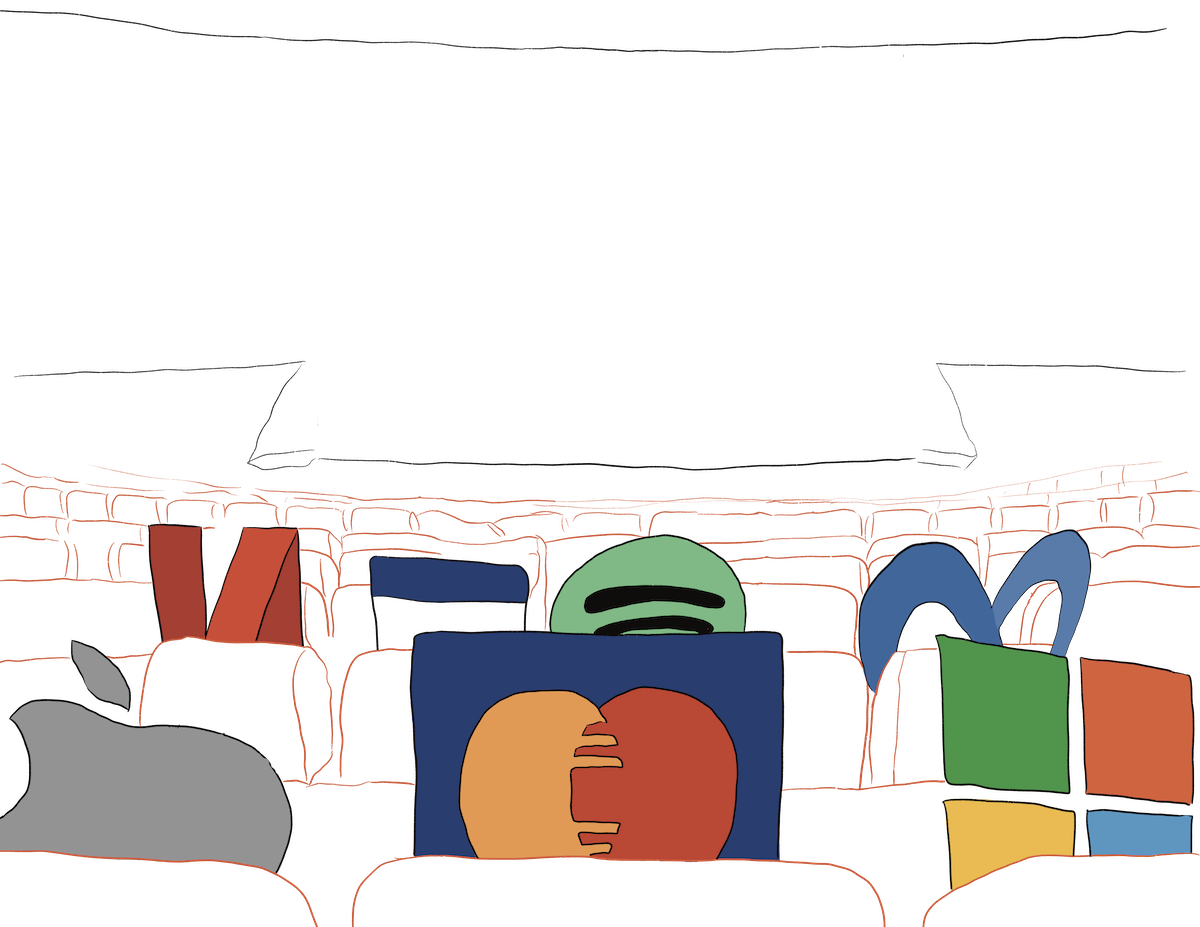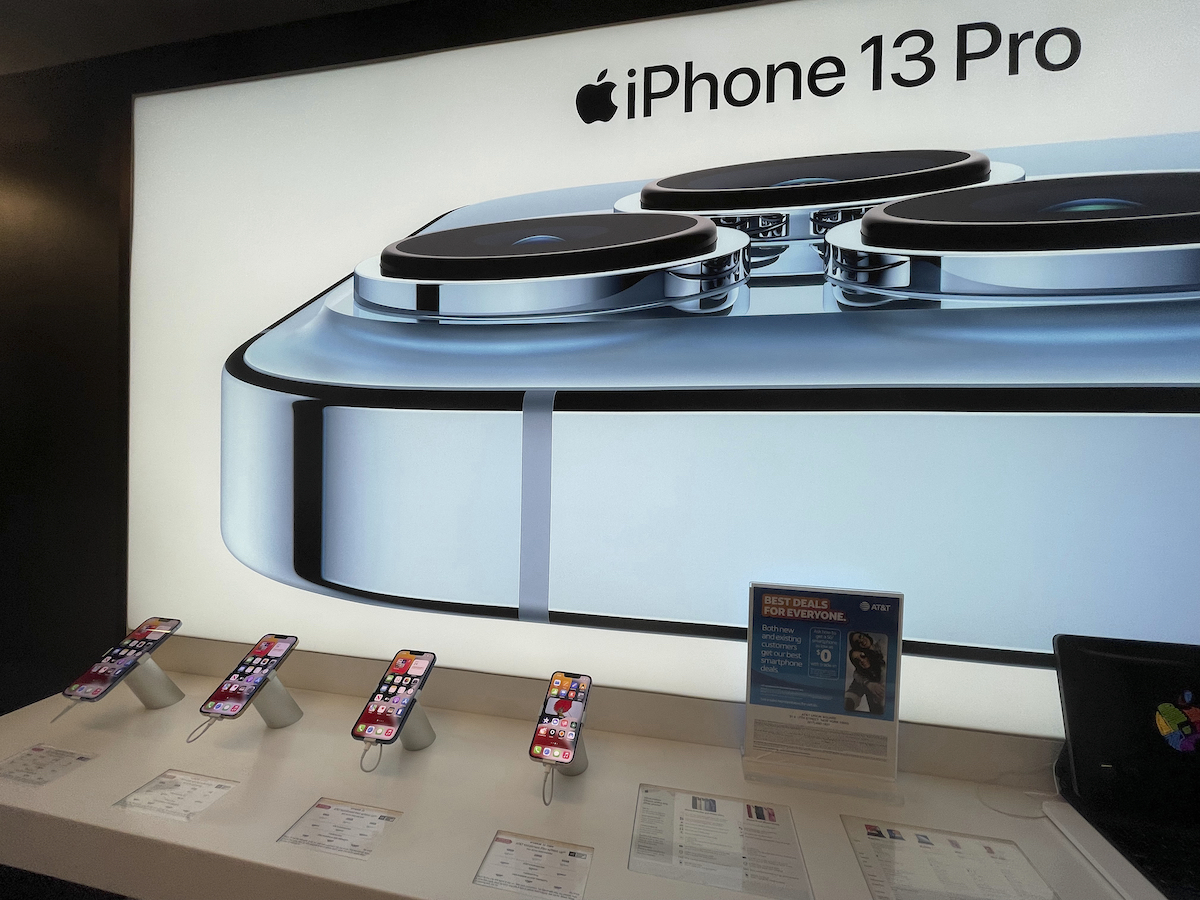The Consumer Electronics Show, otherwise known as CES, kicked off this year on Jan. 3, 2022, during a rising surge of COVID-19 cases. Amazon, Google and Microsoft pulled out this year because of the Omicron influx, but many big companies, such as LG and Samsung, were still present.
CES is an expo that showcases the latest and greatest in consumer technology, often with a mix of hype and iterative products that build upon existing technology. It’s also used to show what might be available on the consumer market several years after a product’s initial demonstration.
A good example is a flexible display, once shown to me by a middle school science teacher via a clip from CES 2006. The world’s first foldable smartphone was released in 2019, otherwise known as the Galaxy Z Fold.
Typically, products don’t take as long as 13 years to reach market—even for CES—but it’s a good example of what to expect at the expo.
Not all products age as nicely in the consumer market, either. CES 2010 presented the future of 3D technology that was assured to be revolutionary at the time—not advanced graphics, but rather 3D TVs, with Sony leading the forefront of the technology. Most manufacturers stopped producing them by 2016.
CES may be guilty again of generating too much hype for products that likely will not succeed. This time it comes in the form of the metaverse.
What is the metaverse? As put succinctly by Jacob Ridley at PC Gamer: it doesn’t mean anything.
A twitter thread by Nima Zeighami photographed every mention of the word metaverse at this year’s CES. He discovered marketers have been using it as a buzzword to make it mean whatever they want it to.
Even if we were to take talks about the metaverse seriously, it distracts from the technological advancements behind the word, or even the advancements that have nothing to do with any products related to augmented or extended reality (sometimes called AR and XR, respectively).
Take LG’s new battery-powered TV on wheels. The rollable, wireless TV monitor could have a huge impact for hospitals, or those that would benefit from the increased mobility.
Samsung’s Home Hub was announced, providing a centralized tablet for many of a home’s smart appliances, from refrigerators to washers and dryers. This is a considerable development for technologies that build a home-based infrastructure known as the Internet of Things (IoT). Other companies like Cync released an entirely new line of smart devices, mostly cameras and thermometers. This surge in IoT devices is likely due to the release of Matter, the world’s first attempt at a unifying, industry-standard connectivity protocol for all IoT devices introduced late last year.
Still, these advancements were quickly overshadowed by self-proclaimed metaverse companies promising obscure, absurd or uncomfortably ambiguous content. One picture in Zeighami’s twitter thread included domains available for purchase as NFTs (non-fungible tokens) which are digital purchases made via the blockchain. Another image promised real-time mirroring of people, objects and environments into a 3D-metaverse space. One instance advertised “metaverse for mobility” and another offered “industrial metaverse solutions” with ICT technologies (information and communication technologies).
It was unclear what these phrases actually mean—or what actual product was being marketed. Many of the metaverse projects are building on top of technology that hasn’t been released for consumers. This creates a more opaque relationship between consumers, investors and developers.
CY Vision, the company offering metaverse mobility, is currently developing AR headsets for next-generation vehicles, according to its website. There is no clear definition of what a next-generation vehicle is, nor how the technology connects to these vehicles.
In other words, CES 2022 has proven to consumers that the metaverse is, by definition, a speculative market.






